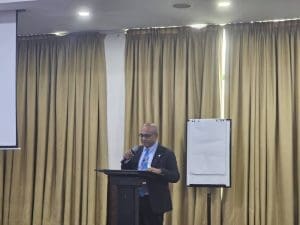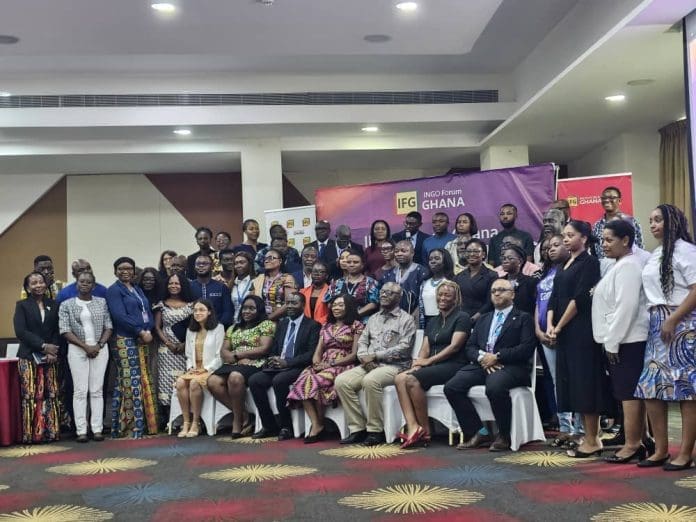The Chairperson of the International Non-Governmental Organisations (INGO) Forum Ghana, Benjamin Fiafor, has called for stronger commitment to financing localization, stressing that without financial backing, efforts to empower local organizations will remain mere discussions.
Speaking at the INGO Forum Ghana Annual Convening 2025, Mr. Fiafor emphasized the need to channel resources directly to local institutions, NGOs, and community actors who are leading development efforts on the ground.
“Localization has been talked about for a long time, but without financial support it will remain in conference rooms and lecture halls,” he noted.
“When financing accompanies localization, local authorities and organizations will be able to function and take up their rightful roles in development.”
The convening, held under the theme “Financing Localization,”brought together government representatives, development partners, the business community, and financial institutions to explore innovative ways of ensuring that funding reaches grassroots organizations.

Mr. Fiafor pointed out three major barriers that continue to hinder effective local financing. The first, he explained, is accountability.
He acknowledged that concerns have been raised internationally about trust in NGOs, with some critics questioning how funds are used.
To overcome this perception, he stressed the need for stronger accountability mechanisms that would reassure funders that resources are being applied responsibly and transparently.
The second barrier, according to Mr. Fiafor, is the issue of capacity.
Many local organizations, he said, simply do not have the systems required to manage large sums of money.
Without the necessary financial and banking structures, and in some cases the organizational ability to utilize funds efficiently, these groups are unable to absorb significant donor support.
He emphasized that capacity-building is therefore crucial to strengthen the ability of local organizations to receive and effectively manage funding.
He highlighted Ghana’s weak philanthropy framework as another key challenge.
The country’s philanthropic environment, he noted, is still in its early stages. Unlike in other regions, individuals and institutions in Ghana do not enjoy tax relief incentives when they donate to development causes.
This absence of a supportive system discourages philanthropy and limits the potential flow of local funding to support community development initiatives.
Mr. Fiafor explained that the INGO Forum is already working with international NGOs to address these barriers by supporting local partners with not only funding but also capacity-building, accountability systems, and monitoring frameworks that ensure resources directly benefit communities.
“There must be a rethinking and reshaping of how funding is done so that financial support reaches the people and organizations on the ground,” he said. “This is the only way to make localization real.”
The United Nations Resident Coordinator in Ghana, Zia Choudhury, emphasized the importance of solidarity and stronger collaboration between the UN, government, INGOs, and local organizations.
He stressed the need for greater accountability and transparency within both the UN and NGOs, not only to satisfy funders but also to safeguard the values of human rights and sustainable development.
He further urged Ghanaian civil society to draw lessons from countries such as Bangladesh and the Philippines, where organizations like BRAC have successfully built sustainable, self-financing development models.
“We need to reimagine financing so that local organizations are not perpetually dependent on international donors,” he noted.
He also appealed for unity in defending human rights and working together to ensure that scarce resources achieve maximum impact.
“No single actor can do this alone. Let us stand together, remain transparent, and amplify the work of local organizations so we can deliver real change for the people of Ghana,” he said.
The Annual Convening reaffirmed INGO Forum Ghana’s commitment to strengthening collaboration between international and local actors, ensuring that development financing not only reaches communities but also drives sustainable growth and accountability.
By Christabel Oboshie Annan
Source: newsghana.com.gh











